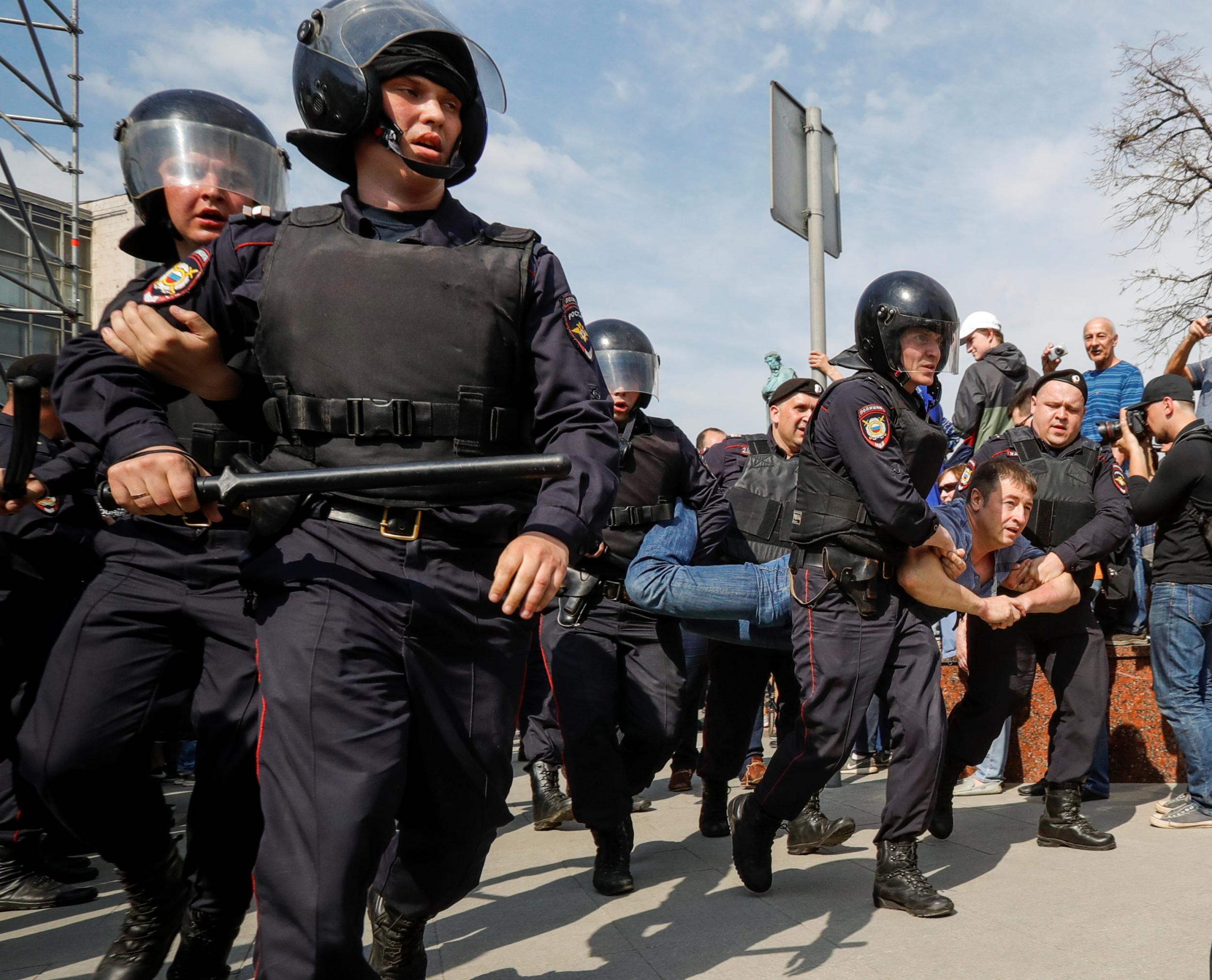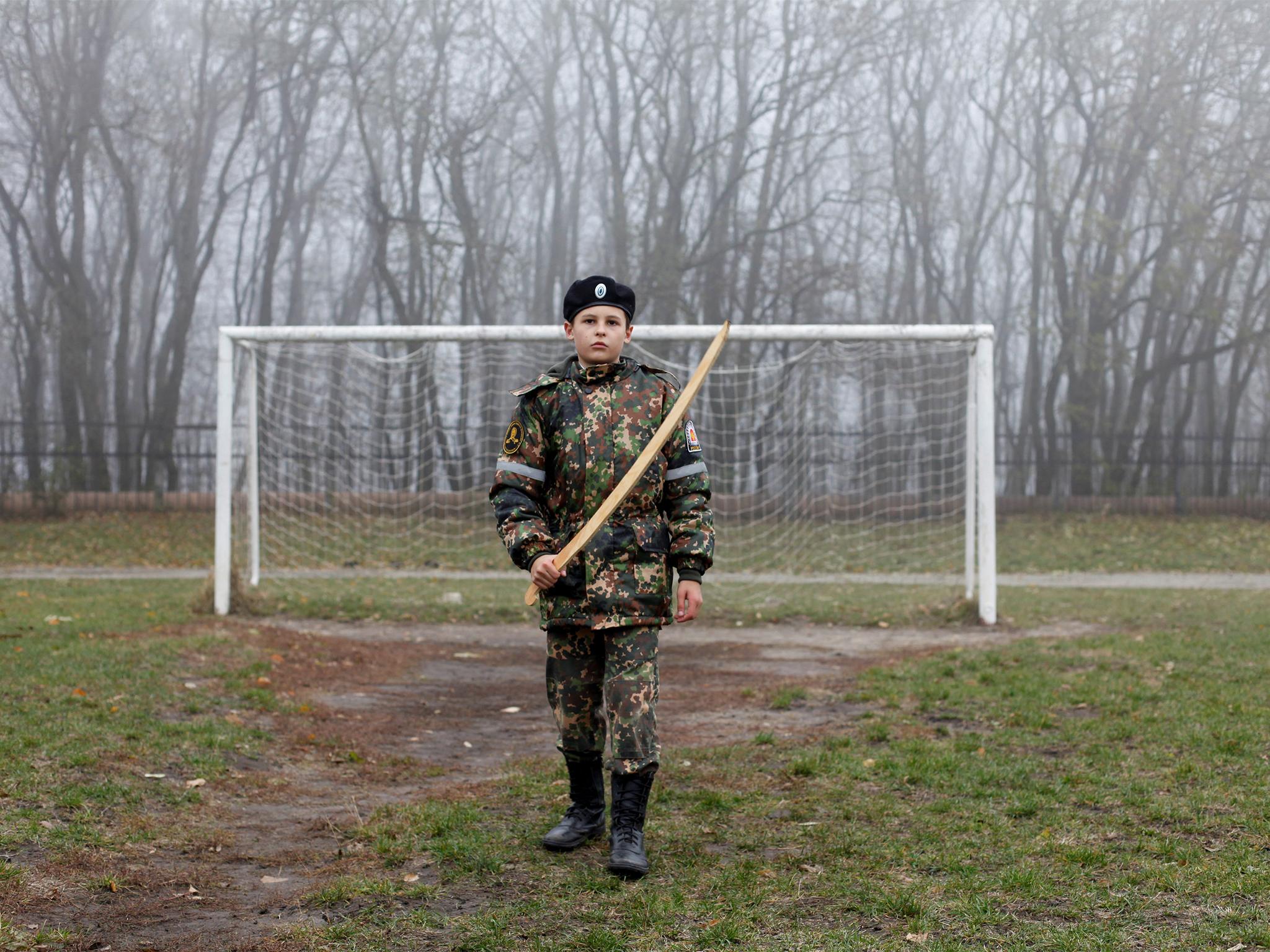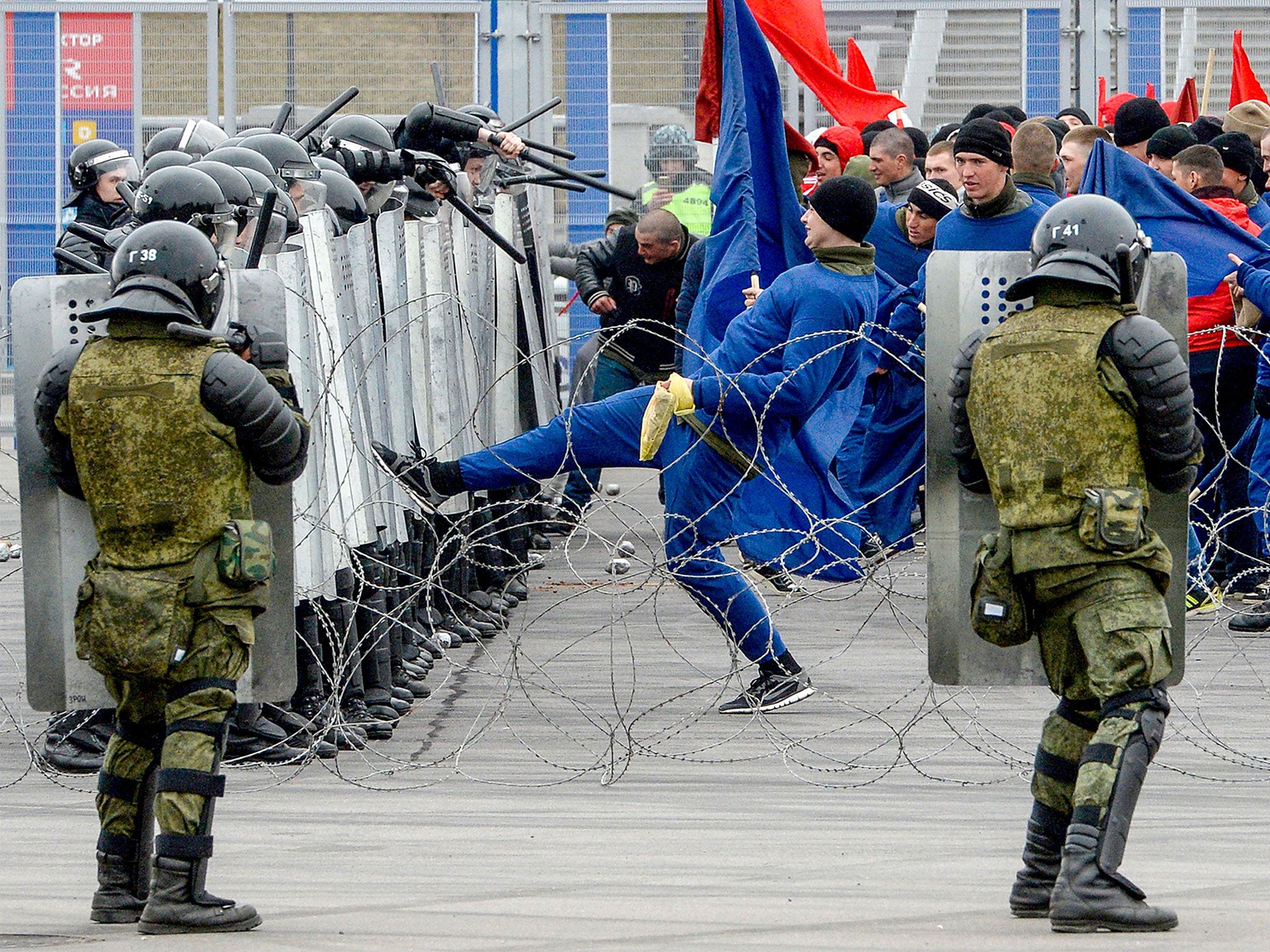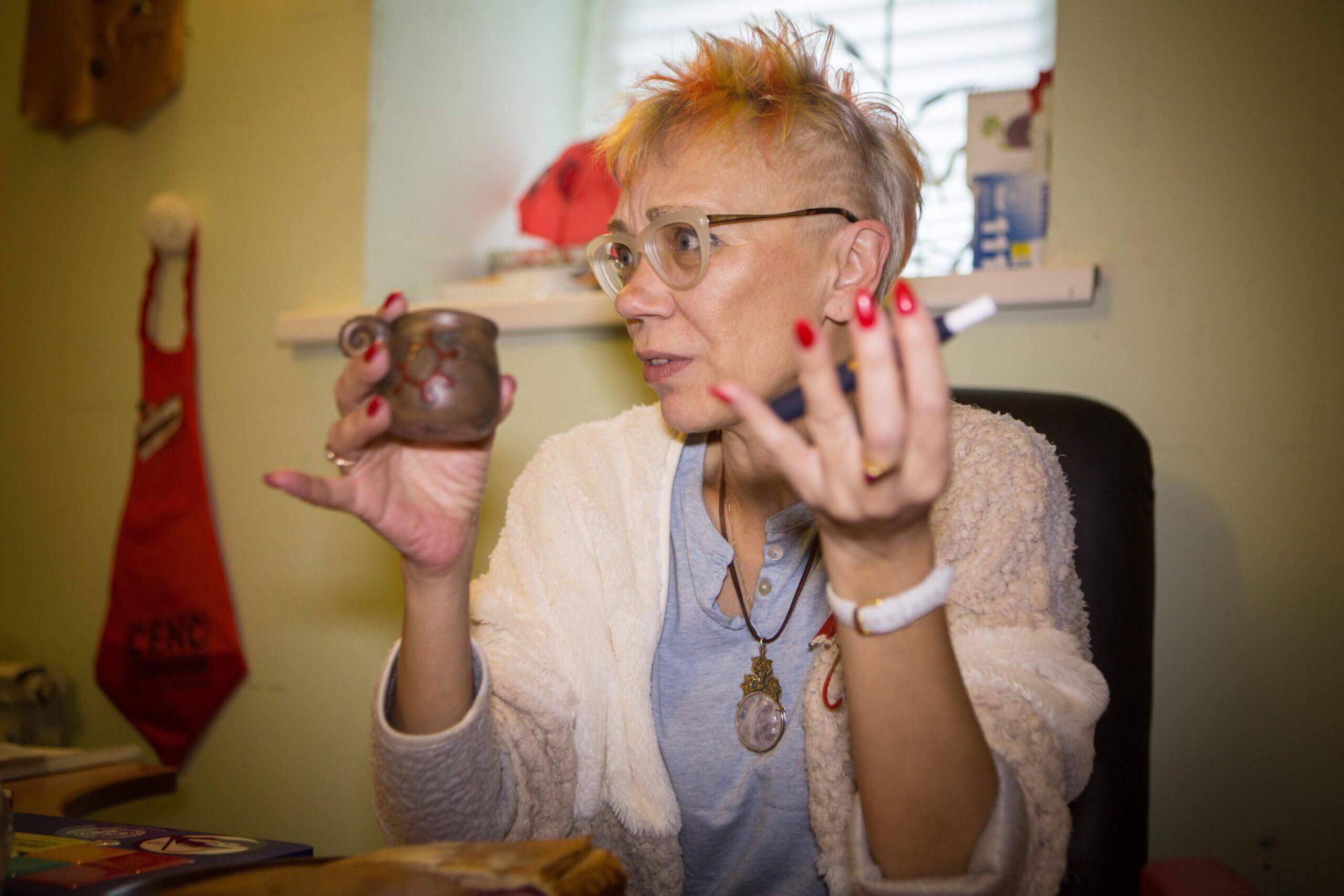No prostitutes, beggars, dogs (or students) please, it’s the World Cup
Russia has stopped short of a wide-scale crackdown of undesirable elements, but not everyone, it seems, is welcome at the big party
Your support helps us to tell the story
From reproductive rights to climate change to Big Tech, The Independent is on the ground when the story is developing. Whether it's investigating the financials of Elon Musk's pro-Trump PAC or producing our latest documentary, 'The A Word', which shines a light on the American women fighting for reproductive rights, we know how important it is to parse out the facts from the messaging.
At such a critical moment in US history, we need reporters on the ground. Your donation allows us to keep sending journalists to speak to both sides of the story.
The Independent is trusted by Americans across the entire political spectrum. And unlike many other quality news outlets, we choose not to lock Americans out of our reporting and analysis with paywalls. We believe quality journalism should be available to everyone, paid for by those who can afford it.
Your support makes all the difference.In the often paranoid months ahead of the 1980s Olympics, nervous Soviet leaders removed every perceivable risk from Russia’s streets.
Parents were told to send their children to pioneer camps, lest they become infected by foreign disease. Students were sent to work the fields, lest foreign depravity dirty their souls. Leading dissidents were advised to stay at home, or imprisoned in psychological wards, lest they brought too much attention to themselves.
Stray dogs were killed; and prostitutes, beggars, and other undesirable elements swept away past the “101km mark” – a point beyond the city borders where few foreigners went.
Thirty-eight years on, history seems to be repeating itself.
Once again, Russia is getting ready to host a profoundly politicised sporting event in a context of general distrust.

In 1980, Afghanistan and the treatment of dissidents were causing anxiety; today, other wars, tensions and internal crackdowns are at play. At least two nations have declined to send official delegations in the wake of the poisoning in England of dissident Russian spy Sergei Skripal.
A Ukrainian film director, on hunger strike in a Siberian prison for the best part of a month, threatens to overshadow the grand opening of the FIFA World Cup in five days’ time.
And there are fears that insalubrious methods of urban filtration are again being applied in at least some of the 12 World Cup host cities.
As has been widely reported, the mass euthanasia of dogs has been stepped up ahead of the World Cup.
This is a feature of local government policy in many regions even outside of sports tournaments, but it is estimated that local authorities will increase the spend to more than £100m this year.
A 2 million-strong petition against such methods has been delivered to the Kremlin, but President Vladimir Putin, supposedly a dog lover, has been unmoved.
Authorities have been similarly unimpressed by the complaints of students, who say their access to education has been sacrificed for the greater needs of the big party.
In Moscow, one group campaigned – unsuccessfully – against the erection of a massive “fan zone” tent next to the main Moscow State University building (also their dormitory).

The students argued, perhaps not unreasonably, that the tent, which can accommodate 15,000 drunk revellers, was not the most conducive thing to study.
One student, who made his feelings known by painting over a FIFA fan zone sign, is facing criminal charges. Police have categorised the offence as causing damage to a memorial of clear cultural significance.
In Yekaterinburg, Russia’s fourth city, whole dormitories were emptied ahead of the World Cup. They were needed for more important guests: the thousands of police and soldiers brought in to the city for match security.
In the same city, police apparently embarked on an operation to round up beggars and the homeless. Rough sleeping spots in stations were the main target, with raids beginning in May.
Some reports claimed dozens of homeless people were bussed out to neighbouring Chelyabinsk. Local homeless charities say they expect the raids to continue throughout the World Cup. Similar practices have been reported in Kazan, another host city.
There were fears heavy-handed tactics would be deployed in Russia’s two capital cities of St Petersburg and Moscow, too.
So far, however, the worst predictions have yet to come true. While homeless people have reported increased pressure to move on from the usual sleeping spots in Moscow, the widespread rumours of mass deportations have yet to be verified.

But “Kursk station”, a group of activists who operate mobile soup kitchens for the homeless in and around Moscow’s train stations, tells The Independent that past police behaviour had taught them to be on guard.
“We’ve seen how the authorities regularly clear people out of the stations,” says the charity’s coordinator Rustam Islamgulov.
“Of course, it’s a bigger deal in winter, when people don’t last a long time on the streets. We haven’t seen major moves yet, but it’s wise to wait and see.”
An activist in St Petersburg told The Independent that the relatively developed civil society of Russia’s two capitals had prevented authorities from moving more forcefully against undesirable elements.
Vika Ryzhkova, coordinator of the Nochlezhka project – which provides beds, and other assistance to St Petersburg's estimated 60,000 homeless – said she had received assurances that there would be no extraordinary operations to clear the homeless from the city. But there were fewer organisations to protect the vulnerable in Russia’s other host cities, she added.
We called around 18 of them the other day, and the response was the same – things have become so frightening there is no way we’ll be opening our doors
“There are lots of organisations, both here and in Moscow, enough to raise a real scandal if mass clearances begin. They’re not exactly scared of us, but they don’t want the headache.”
Other parts of the underworld expect tougher treatment.
By many accounts, the sex industry is one of Russia’s largest employers – and with a larger client base. But for reasons moral and mostly financial, its employees have found themselves increasingly under the thumb of law enforcement.
Pressure is traditionally ratcheted up ahead of prestigious international events, such as the Economic Forum in St Petersburg. But police have been especially active ahead of the World Cup, activists say.
Irina Maslova, the head of Silver Rose, an NGO representing sex workers, says women have been "intimidated" in the run-up to the championship.

Told there was no place for them in a tournament designed to show off the best of Russian values, many have simply left the city for the duration, Ms Maslova, herself a former sex worker, says.
“The majority of brothels in St Petersburg have decided to stop working,” she tells The Independent.
“We called around 18 of them the other day, and the response was the same – things have become so frightening there is no way we’ll be opening our doors.”
With federal government cracking down on online escort sites, those sex workers who need to keep working have been forced to work with the “protection” of a police racket, she adds.
“The girls pay them all the time – it’s a very strange type of tax. The police are completely unaccountable, and generally incapable of dealing with people humanely.”
Authorities have also indicated there will be little tolerance of dissent during the tournament, with controversial protest laws extended to include one-man pickets for the first time.
Now anyone with a political placard needs, in theory, to apply for permission. One can presumably get around this requirement with suitably patriotic slogans.
Fears of a wide-scale and ugly crackdown, however, seem overblown – at least for as long as the world’s eyes are on Russia.
“The authorities have indicated they will turn on the charm and avoid heavy operations during this World Cup,” says Alexei Makarov, a researcher at Memorial, a human rights NGO.
“But perhaps the experience of the 1980s is a useful guide. In late 1980, basically as soon as the last athletes had left Sheremetyevo airport, the arrests were stepped up, the trials began, and the dissident movement was largely decimated.”
Subscribe to Independent Premium to bookmark this article
Want to bookmark your favourite articles and stories to read or reference later? Start your Independent Premium subscription today.

Join our commenting forum
Join thought-provoking conversations, follow other Independent readers and see their replies
Comments